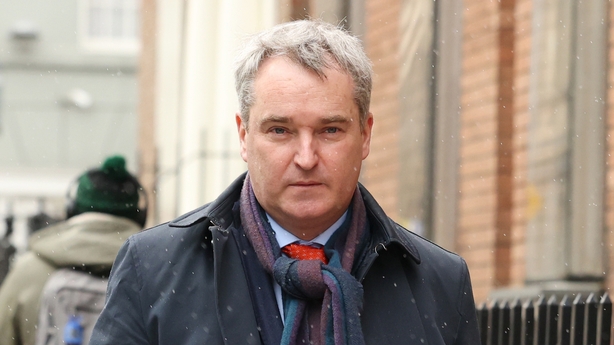Health Service Executive CEO Paul Reid has said that during the pandemic, outpatient waiting lists grew by 98,000 or 18%, inpatient/day cases rose by 9,000 or 14% and endoscopy waiting lists increased by 10,000 or 47%.
Mr Reid told the Oireachtas Committee on Health that demand continues to exceed capacity in many specialities and patients are waiting too long to be seen.
He said that a plan to improve waiting lists to achieve Sláintecare access targets is being developed with the Department of Health, clinical and managerial colleagues.
Mr Reid said that that by the end of December, the outpatient waiting list had been cut by 5%, but there had only been a slight decrease in the in-patient/day case list due to significant cancellations of planned procedures arising from Covid-19.
We need your consent to load this rte-player contentWe use rte-player to manage extra content that can set cookies on your device and collect data about your activity. Please review their details and accept them to load the content.Manage Preferences
Mr Reid also told the committee that the HSE is working with the Department of Health to design six regional health areas.
He said that it is anticipated that by the end of this year, corporate and clinical governance frameworks will be completed for RHAs.
Meanwhile, the Secretary General of the Department of Health has said that significant progress is being made in delivering the Sláintecare healthcare reform agenda.
Robert Watt told the committee that Covid-19 took up much of management time over the past two years, which slowed down several reforms.
He said that it also accelerated many positive aspects of Sláintecare, including new ways of working.
Mr Watt said that a Waiting List Action Plan will go to Government next week.

He said that €350m has been committed to supporting the waiting list plan this year and he hoped that by the end of this year, the number of patients on active waiting lists will be at the lowest point since the beginning of Covid-19.
Mr Watt said that staffing in 2020 experienced the largest increase since the foundation of the HSE and 2021 saw that trend continue with more than 6,000 whole time equivalent staff members recruited across all service areas, including an additional 150 consultants.
He said there are now over 12,500 more staff working in the health service than there were at the beginning of 2020.
Talks are ongoing with representative bodies on the implementation of the Sláintecare consultant contract, which will pave the way for the removal of private care from public hospitals, he said.
Mr Watt noted that the high-level timeframe for the new Regional Health Areas (RHA) will see detailed designs this year, with implementation beginning next year.
A memo is expected to go to Government in the coming weeks on the organisational design, governance and funding for the RHAs.
Mr Watt said that the recruitment of 10,000 staff this year for the HSE will be very challenging, while Mr Reid said that the market is a very difficult one and that the likely recruitment level will be 5,500.
Meanwhile, Social Democrats TD Róisín Shortall told the Committee that it is now the fifth year of reforms and the system had stalled, if not gone backwards.
She said it made her heart sink and that there was no sense of the reforms being driven but rather the reform programme being captured.






